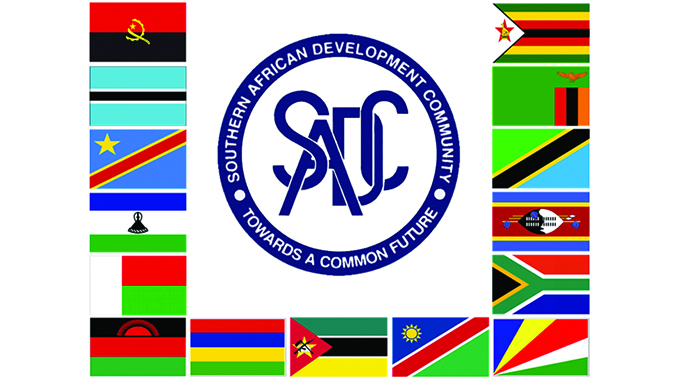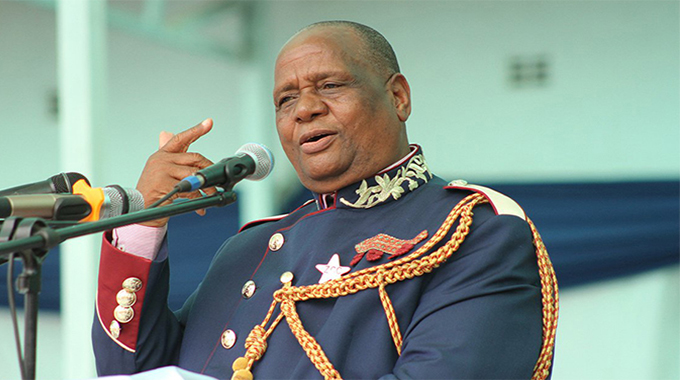Sadc poised for economic rebound in 2022: AfDB

Oliver Kazunga, Senior Business Reporter
THE African Development Bank (AfDB) has projected that the Southern African region would register an economic rebound next year if the region manages to contain the Covid-19 pandemic.
Since its outbreak, Covid-19 remains a major barrier to development progress in the region with adverse impact on businesses and ordinary people.
In a latest statement, the regional financier has noted that like elsewhere on the continent, the pandemic will be a deciding factor in the region’s economic fortunes.
“If all goes well and that includes a successful vaccination campaign and health measures such as social distancing and wearing masks, Southern Africa is projected to grow 3,2 percent in 2021 and 2,4 percent in 2022,” said the AfDB.
It said the projections were notable compared to last year when the region suffered a 6,3 percent contraction which was the worst in Africa.
Central Africa experienced the second-worst regional economic contraction at 2,6 percent. The bank’s director general of the Southern Africa region Ms Leila Mokaddem was quoted as saying the pandemic had left a deep impression among the 13 nations that were covered by the Southern Africa Economic Outlook report.
The countries include Angola, South Africa, Namibia, Zambia, Malawi, Madagascar, Mozambique, Lesotho, eSwatini and Zimbabwe.
“The magnitude of the socio-economic impact of the Covid-19 pandemic on countries in Southern Africa cannot be overemphasised — rising poverty, inequality and unemployment among other economic malaise,” she said at the recent launch of the Southern Africa Economic Outlook.
Ms Mokaddem told government officials, economists and partner representatives who attended the session that despite the current low infection rates, the situation remains fluid given the threats of new Covid-19 waves and virulent variants.
The pandemic-induced effects on output were more pronounced in countries that strongly depend on tourism such as Botswana, Mauritius, Namibia, and Zimbabwe. This was also the same for countries that rely on commodity exports.
Going forward, lack of economic diversity could stifle the recovery.
Ms Mokaddem said commodities play an oversized role in many of the region’s economies such as Angola, Mozambique and Zambia.
AfDB director of the country economics department Dr Emmanuel Pinto said the region’s economic performance fit in with the larger picture in Africa and the world as a whole.
All but one region on the continent, East Africa, recorded growth in 2020.
Overall, Africa experienced one of its worst recessions in decades.
“The good news is that there’s a recovery and the outlook is positive . . . The very good news is that the three largest economies — Nigeria, South Africa and Egypt are recovering,” it said.
AfDB said slow growth in South Africa, the region’s largest economy, spilled over into its neighbours, which rely on the former for manufactured goods and as a market for their production inputs.
However, regional inflation is expected to moderate from an estimated 14,2 percent this year to 6,5 percent in 2022 thereby improving growth prospects.
The region’s debt outlook is of moderate concern, considering that pandemic-related expenditure led to a surge in public spending.
Gross government debt is expected to rise mildly. Bank experts propose a number of short, medium and long-term policies to nurse the economies of Southern Africa back to health.
These include targeted support for badly hurt sectors such as tourism, removing trade bottlenecks and introducing efficient social protection programmes.
Meanwhile, the AfDB is targeting to raise US$10 billion in 2022 from capital markets through a borrowing programme, which will boost its operations.
The regional financier is active in various international capital markets including the United States dollar, Euro, Australian dollar and the British pound.
“The 2022 borrowing programme of AfDB was approved by the board of directors on 14 December and the bank expects to raise up to US$10 billion from the capital markets,” said AfDB.
The bank said it will continue to consolidate its environmental, social and governance (ESG) footprint through issuance of green and social bonds, which this year included its first ever social bond.
The regional financier has also used its “High 5” strategic priorities as a platform to issue 29 theme bonds, including Integrate Africa, Feed Africa, Improve the Quality of life for the People of Africa, Industrialise Africa and Light Up and Power Africa.
“The bank will continue to promote the development and deepening of African capital markets through the issuance of local currency-denominated debt to facilitate the financing of its local currency operations alongside other initiatives,” it said. – @KazungaOliver.









Comments